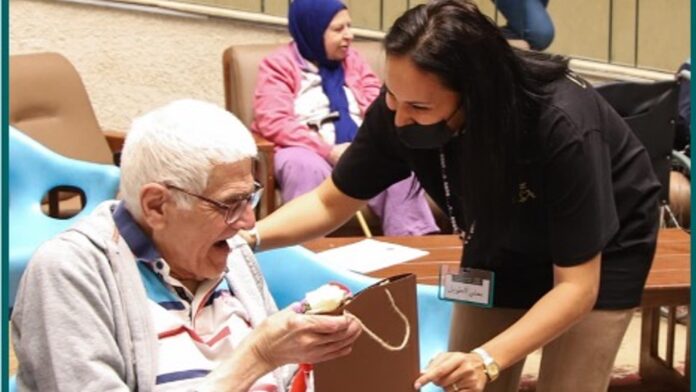Introduction
The global population of individuals aged 60 and above is rapidly increasing, and Egypt is experiencing a moderate ageing trend, as the Economic and Social Commission for Western Asia (ESCWA) reported. While caring for older people in Egypt has traditionally been viewed as a family responsibility, societal changes, including migration and increased female labour participation, are challenging the ability of families to provide long-term care. Moreover, the COVID-19 pandemic has highlighted the importance of home-based care for older adults, emphasizing the need to develop inclusive and sustainable support systems. This article presents the findings of a mixed-methods study conducted in Cairo in 2021, focusing on the assets, challenges, and recommendations for developing home-based aged care in Egypt while engaging older adults for enhanced quality of life.
Understanding the Current Landscape
In Egypt, older adults prefer to age in place due to cultural factors and the stigma associated with institutional care. However, there is a lack of precise data on the distribution of older adults across different types of care. According to available statistics, registered nursing homes in Egypt provide less than 0.05% of the older population with care, indicating that most older adults are either living at home or not receiving formal care. These demographic changes and the challenges posed by the COVID-19 pandemic highlight the need for comprehensive long-term care support that includes formal services, social connections, and economic engagement for older adults.
The Study Approach
To gain insights into the home-based care services available in Cairo and the role of various stakeholders in supporting older people, a mixed-methods study was conducted using an Asset-Based Community Development (ABCD) approach. Data was collected through appreciative interviewing and asset mapping, involving stakeholders such as NGOs, private companies, caregivers, religious entities, and older adults and their families. The study aimed to identify the assets within the home-based care community and understand the challenges that service providers and older adults face.
Identifying Assets and Challenges
The study identified various assets within the home-based care community, including human resources, skills, volunteer associations, institutions, physical assets, and social connections. However, several challenges were also identified, such as the vulnerability of older people in home-based care, lack of collaboration between stakeholders, limited grassroots associations, and the absence of a governing authority or regulatory framework. These challenges led to the operation of some entities without regulation, potentially compromising the quality of care provided.

Spatial Analysis and Recommendations
Geographic Information System (GIS) mapping explored the relationship between the supply and demand of home-based care services in Cairo. The mapping revealed the economic and cultural impact on existing services, highlighting the correlation between employment rates, education, and the demand for home-based care. Based on the findings, several policy and practice recommendations were proposed.

Improving governance was identified as a crucial aspect, requiring establishing effective laws, regulations, and quality standards for home-based care services. Collaboration and partnerships between the state, private, and public sectors were recommended to strengthen the asset base and enhance service provision. Training accreditation through partnerships with academic institutions was also suggested to enhance caregivers’ skills and prioritize the psychosocial components of care. Additionally, the study emphasized the need to tailor services to individual needs, leveraging online platforms, increasing digital literacy, and providing additional activities to combat the effects of isolation. Promoting grassroots and community-based associations and fostering collaboration between NGOs, religious institutions, and older adults themselves was highlighted as an essential step towards expanding the range of care services and fostering intergenerational solidarity. Finally, involving older adults in fundraising activities and providing training opportunities through NGOs and academic entities were suggested to facilitate economic development.
Conclusion
The development of home-based aged care in Egypt requires a holistic approach that engages older adults and recognizes them as valuable assets. Egypt can establish a comprehensive and responsive home-based care system by implementing the recommendations outlined in this study, such as improving governance, enhancing training and accreditation, tailoring services to individual needs, strengthening grassroots associations, and promoting economic development. This system will ensure high-quality, personalized care and support for older adults, foster social cohesion, and empower them to age with dignity while contributing to society.
Read the full study here.

Yomna El Taweel
Yomna El Taweel is an adjunct faculty instructor at the American University in Cairo. She got her master’s degree in community psychology, focusing on older adults’ issues. Her background is in community psychology and computer science. She is particularly interested in care systems, equity, and unmet needs. She is a consultant and effectively supports multiple clients in Egypt and other MENA countries. In her work in the community psychology field, she worked with different groups, including older adults, children on the move, victims of trafficking and alternative care. She is also part of UNICEF Egypt’s social care reform project.


